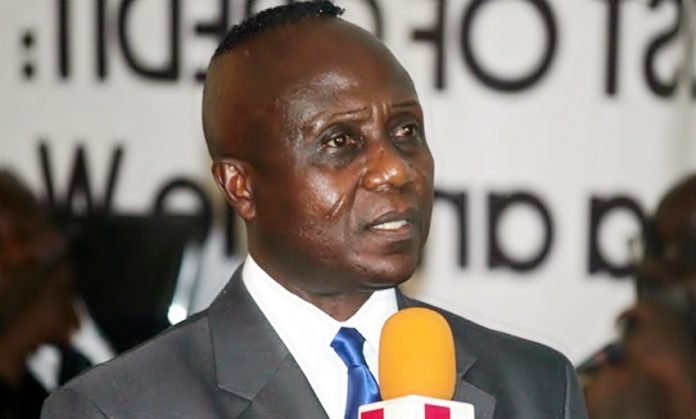The Institute of Economic Affairs (IEA) is pushing for the establishment of a Currency Board (CB) to limit the Central Bank lending to the government, a move it believes will stabilise the cedi and prevent instability in the economy in times of shocks.
According to the institute, since the CB system has limited inflation, the currency does not depreciate and balance of payments crises are rare.
“You see, a Currency Board (CB) is a rigid monetary management system that is hedged in strict rules, with little room for discretion. The CB does not lend to government and it covers its currency fully by foreign exchange”.
“The CB system has limited inflation, the currency does not depreciate and balance of payments crises are rare. This is close to the system in our Francophone neighbours, who restrict their Central Bank lending to governments and provide adequate cover for their currency, the CFA”, it emphasised.
Furthermore, the IEA said the Francophone countries system guarantees them low inflation and a stable currency, but “you have Ghana that has chosen an independent Central Bank to conduct discretionary monetary policy’.
It also blamed the Bank of Ghana for some of the economic woes, saying, “The Central Bank provides significant lending to government and covers the cedi with limited foreign exchange (40% in the Act). No doubt we face perennial price and currency instability!”
“It is for this reason that some of us have argued that if we continue to abuse policy discretion and pay a high price for it in terms of macroeconomic instability, then we better hedge our policies by rules; tie our economic managers hands, so that we can enjoy rules-driven macroeconomic stability!”, it added.
Finally, the IEA said despite Ghana having rules such as the Public Financial Management Act, the Bank of Ghana Act and the Fiscal Responsibility Act, the rules have not work because of lack of political way.
“Let me say that it is not that we have had no rules at all in fiscal and monetary management. In fact, I can mention a couple of them, such as the Public Financial Management Act, the Bank of Ghana Act, the Fiscal Responsibility Act and the relevant provisions in the 1992 Constitution, which represent attempts to introduce rules in our fiscal and monetary management system”.
“However, there are serious questions regarding not only their enforcement but their effectiveness as well. And that is the reason we feel strongly about the need to give constitutional backing to some of these rules”, it concluded.
Latest Stories
-
Wicked proves popular as opening set to be biggest for Broadway film
7 mins -
Nominee for agriculture secretary completes Trump cabinet
19 mins -
ECG urges prepaid customers to top up to last one month ahead of system upgrade
39 mins -
Three more tourists named in Laos methanol deaths
59 mins -
Betway Africa offers a once-in-a-lifetime ‘Play-on-the-Pitch’ experience at Emirates Stadium
1 hour -
The rise and fall of Matt Gaetz in 8 wild days
1 hour -
School Feeding Programme: Bono East NIB seizes smuggled rice, arrest driver
2 hours -
Dr. Razak Opoku: Despite challenges, facts and data still prove NPP is better manager of the economy than NDC
2 hours -
Seidu Agongo: On December 7, it must be peace over power
2 hours -
2024 Election will take place on December 7; ignore misleading claims – EC
2 hours -
GPL 2024/25: Asante Kotoko bounce back with win over Aduana FC
2 hours -
GPL 2024/25: Gold Stars beat Vision FC to retain top spot
3 hours -
Ebo Whyte returns with ‘The 4Play’
3 hours -
2024/25 Ghana League: Heart of Lions sink Legon Cities to go third
4 hours -
Bright Simons: DBG, Ghana’s top development bank, goes for the jugular
4 hours

